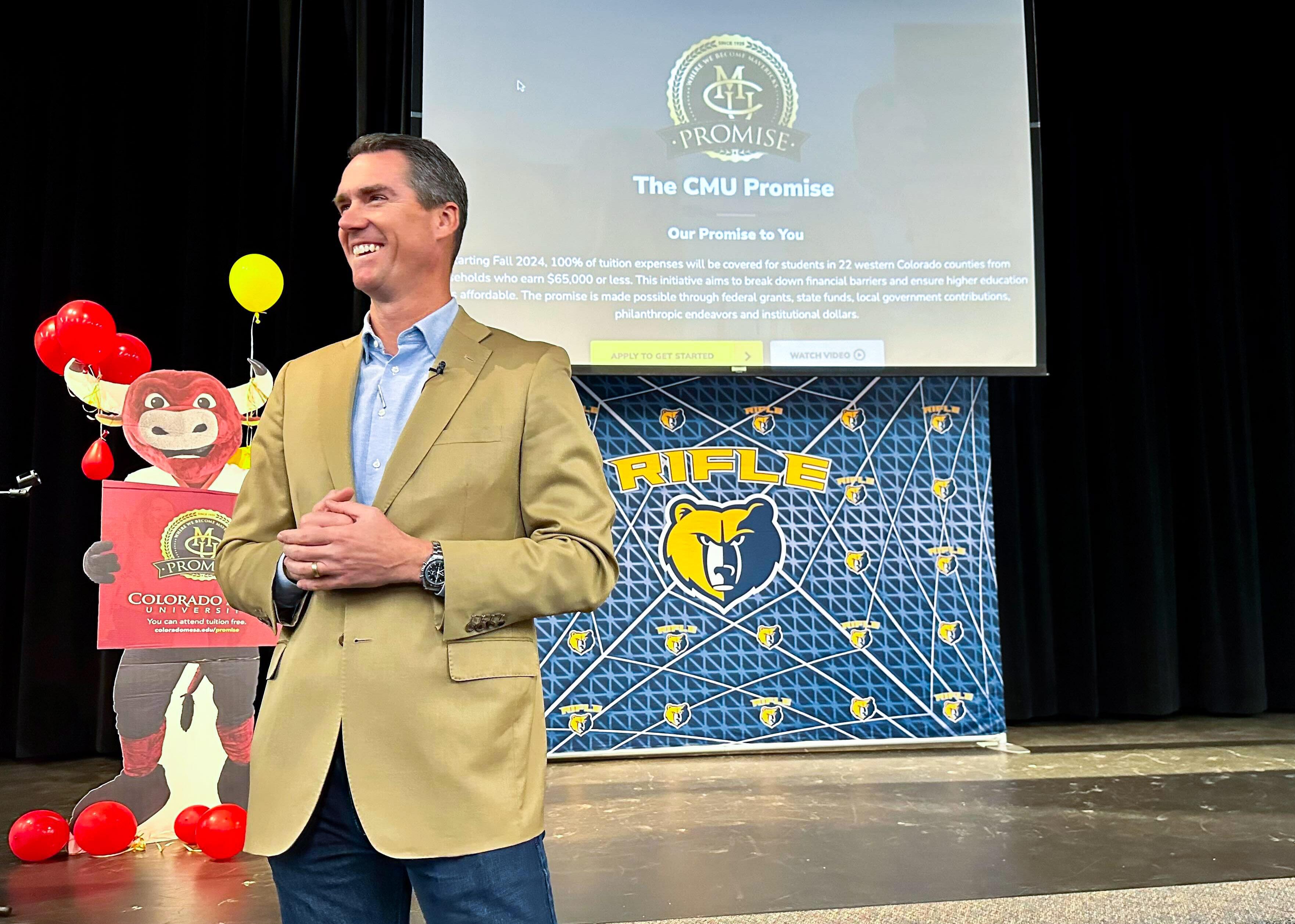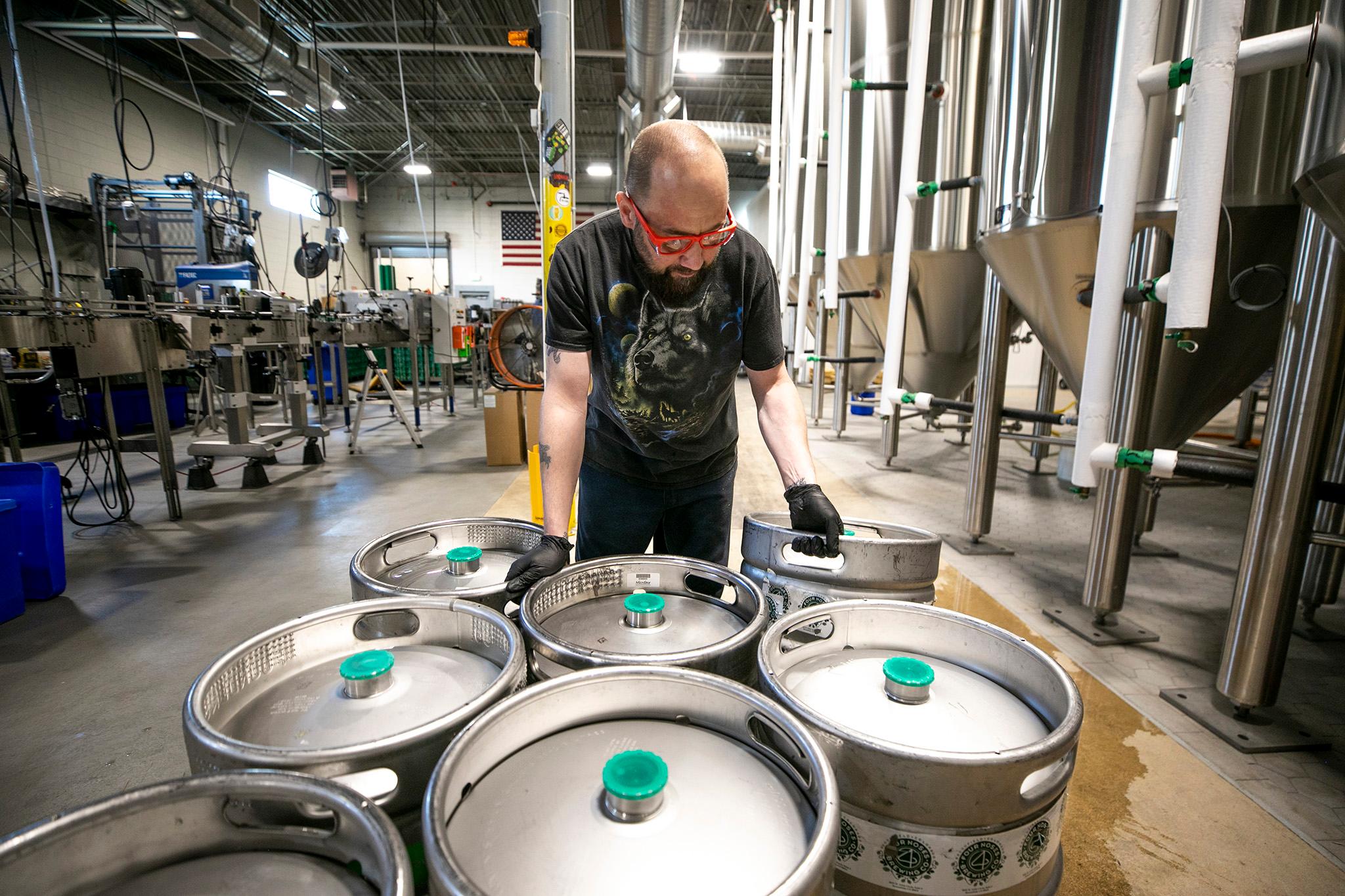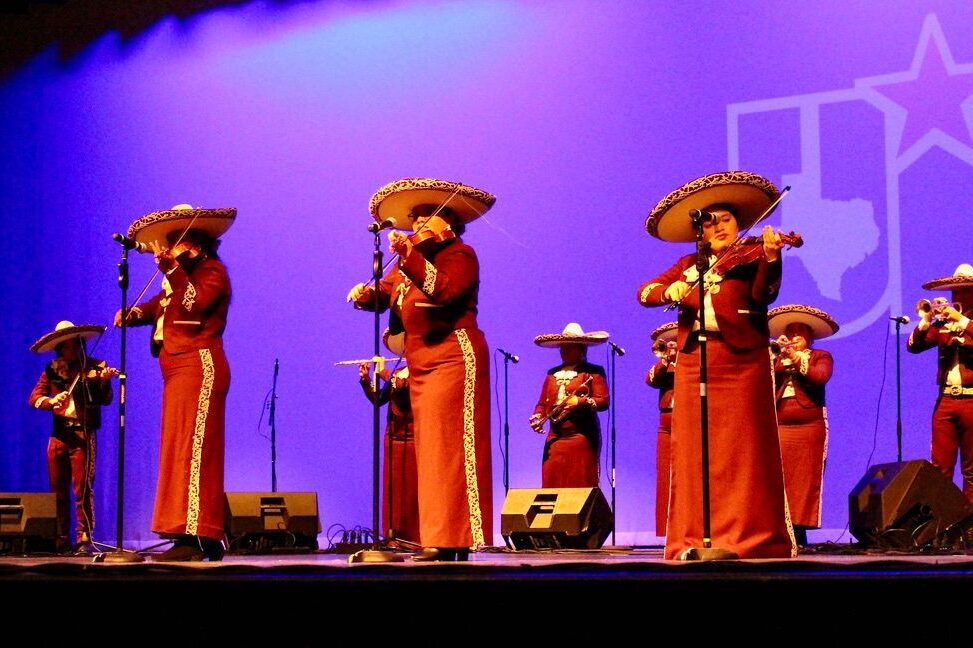
 Colorado oil production just hit a 50-year high: 48 million barrels. That’s almost a 50 percent increase in just a few years. The heart of the boom is happening in Weld County, in northern Colorado. There’s only one other county in the country that has more oil and gas wells than Weld County. And the Colorado Oil and Gas Association says, “The boom is still in its infancy.” CPR's Lesley McClurg reports locals have mixed reviews about what it's like to live inside the boom.
Colorado oil production just hit a 50-year high: 48 million barrels. That’s almost a 50 percent increase in just a few years. The heart of the boom is happening in Weld County, in northern Colorado. There’s only one other county in the country that has more oil and gas wells than Weld County. And the Colorado Oil and Gas Association says, “The boom is still in its infancy.” CPR's Lesley McClurg reports locals have mixed reviews about what it's like to live inside the boom.
Transcript of Lesley's story follows:
Weld County looks like a giant farm under construction. Corn and barley fields wrap around over 20,000 oil and gas wells. Around forty new wells come online every week. Oil pumps bob up and down, interrupting the horizon.
Jan Brett says the industrial development is all relatively new. She and her husband moved to Weld County twenty five years ago. They were craving a change of pace.
Jan Brett: “It was a just dream come true. I never thought coming from Southern California that I’d want an old farm. But, there it was and it was for sale and we called the guy and said we’ll take it. He thought we were crazy.”
The Bretts were thrilled to get away from city stress, construction noise, and traffic.
Jan Brett: “We have a little patio and we used to have friends that would just come and sit just come and sit here for the peace and quiet. And it used to be like that where you could work outside with my dog or my daughters, and you know there wouldn’t be a car that went by all day -- maybe a tractor or two.”
They redid the house...
Put in a huge garden...
And Jan spent as much time as possible outside with her two girls.
Jan Brett: “You know, playing in mud, bringing me salamanders, bugs. We had honeybees here. We had chickens, we fostered puppies. So, we always had puppies running around.”
But five years ago country living began to change. It started with the sounds of semi-trucks whizzing by all day. Then the air started to smell funny.
Jan Brett: “Even when people say, well, it's natural gas, that doesn’t have any smell. There’s a lot of bad smells out here. And its not the cattle and the feedlots and everything; it's a lot more chemical smells.”
Jan’s daughters began getting nosebleeds. And she worried that whatever was making the smells could be the cause. Then one night an explosion woke the family. It was a well close to their home.
Jan Brett: “... shook the windows and we could see the flames shooting up from here. And it had to have been... I don’t know how many miles away it was. You know, because you think, what if that happens closer to us? And then the well went in right behind our house.”
Jan’s neighbor had sold the mineral rights under his land to an oil and gas company.
Jan Brett: “They put up the huge thing called the Christmas tree, so the lights are on 24 hours a day and the water trucks going back and forth all day long and then the dust and the dirt. I remember going through the house and you could wipe off the dirt off the window sills.”
Eventually the Bretts determined they were no longer living their dream. Last year they sold their farm house and moved to Fort Collins, Colorado.
Jan Brett: “It's hard to let something like that go that you’ve put every bit of your life into for that long.”
But, down the road from Jan’s old farm... Chuck Sylvester says he welcomes the oil and gas boom.
Chuck Sylvester: “It is a pleasure of mine to get up early and see these trucks leaving early -- five, six in the morning. And if you listen real close you can hear them go by.”
Chuck’s family has been in Weld County since 1869.
Chuck Sylvester: “My great grandfather came in here as one of the early settlers on the bottom. They started growing crops of corn and hay and later sugar beets.”
Chuck’s wife Roni also grew up on a farm.
Roni Sylvester: “I am homemaker and a mom and a wife and always have been and probably always will be. Farm girl first and foremost.”
There are eighteen wells less than a quarter of a mile from Chuck and Roni’s big white farmhouse. From their kitchen window you can see eight round oil tanks. Roni remembers what it was like when the first well was drilled on their property.
Roni Sylvester: “They came in with all the construction equipment and the trailers and set up an entire little city there. It was very noisy and it did happen to be in the summertime and so we had our windows open. But, we got used to it, but it was just there for a minute there... oooohhh.”
Chuck says a short burst of construction pays off down the road.
Chuck Sylvester: “Its a wonderful sound. Would you like to live where nobody worked where nobody had any money? There would be no sounds nothing to see, nothing to do -- be like moving to the moon.”
Plus, Weld County is only one of a few counties in the nation that’s debt-free. It’s not just the government that’s doing well... Chuck and Roni say they didn’t even feel the Great Recession.
Chuck Sylester: “This is what America is about... people working, creating a product, and those people go to town and buy goods services and that creates jobs and it goes on and on there. It's economic activity that’s generating for thousands of people here in Weld County.”
The boom is likely to continue. Oil and gas companies project there could be up to 1.5 billion barrels of oil sitting below Weld County. That’s enough to provide all Coloradans with oil for sixteen years.
At the State Capitol, lawmakers who think like Jan Brett... are battling those who think like Chuck and Roni Sylvester. This week, Democratic legislators are introducing a series of bills to tighten restrictions on the oil and gas industry. The industry argues that tighter regulations will mean serious economic repercussions.









